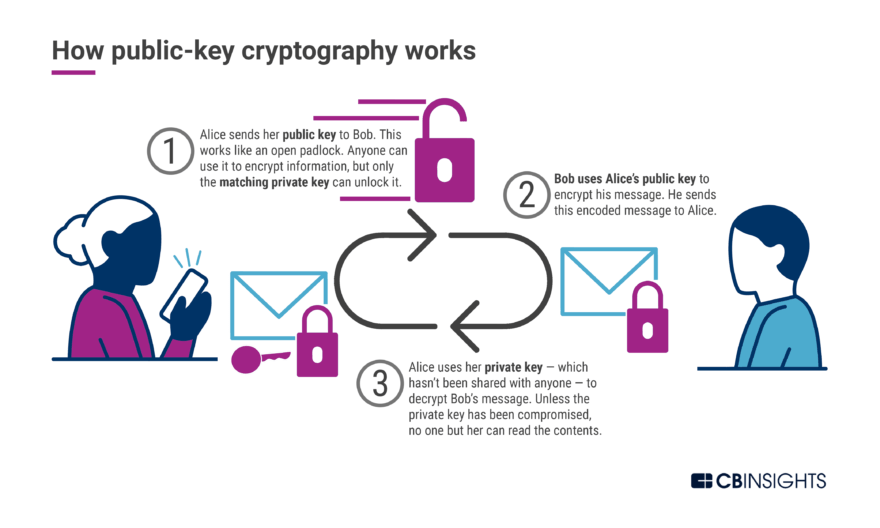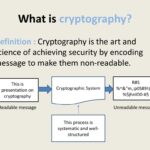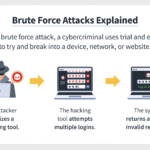In recent years, the advent of quantum computing has ushered in a new era of theoretical and practical considerations concerning data security, particularly in the realm of public key encryption. The emergence of qubit-based computation presents novel opportunities and unprecedented challenges that merit extensive scrutiny. As traditional encryption methodologies come under increasing scrutiny, the juxtaposition of quantum computers and public key encryption becomes not just a technical debate but a profound inquiry into the future of secure communications.
Public key encryption, a cornerstone of modern cryptographic practices, allows users to securely exchange information over insecure channels. This method relies on the complexity of mathematical problems, like integer factorization and the discrete logarithm problem, which are computationally intensive for classical computers. However, quantum computers leverage quantum mechanics to perform calculations at exponentially accelerated rates, enabling them to solve these problems with remarkable efficiency. This promise sparks an urgent question: will quantum computers render public key encryption obsolete?
At the heart of this inquiry lies a pivotal observation: the fundamental architecture of quantum computing enables algorithms, such as Shor’s algorithm, capable of efficiently breaking widely utilized public key encryption schemes like RSA and ECC (Elliptic Curve Cryptography). While classical algorithms might take millennia to factor large integers, a sufficiently powerful quantum algorithm can achieve this in polynomial time. The implications are staggering; if quantum supremacy is realized, secure communications would be at imminent risk, necessitating a radical overhaul of cybersecurity protocols.
One might wonder why quantum computers generate such a profound fascination, not merely from a technological perspective but from implications that ripple through society. The allure is not merely academic; it encompasses ethical and pragmatic dimensions of what security and privacy mean in a world increasingly reliant on digital transactions. The potential for quantum computing to disrupt existing infrastructures demands a comprehensive understanding of both its capabilities and the countermeasures needed to protect sensitive data.
To contextualize this, it is vital to assess the landscape of public key encryption. The algorithms that underpin this cryptographic framework are predicated on the assumption of computational intractability—an assumption now jeopardized by quantum advancements. The fascination with quantum computing is accentuated by its dichotomy with public key methods; each represents a different facet of mathematics and information theory. As researchers and practitioners alike ponder possible remedies to protect against quantum threats, the race to develop post-quantum cryptographic algorithms has commenced, with an urgency reflective of the stakes involved.
Responses to the quantum threat involve the development of new algorithms that withstand quantum attacks. Lattice-based cryptography, hash-based cryptography, and multivariate polynomial equations are at the forefront of this evolution. Lattice-based approaches, for instance, utilize the mathematical properties of lattices to create problems that remain hard even for quantum computers. The exploration of these alternatives reveals a burgeoning field in cryptography that intersects mathematics, computer science, and information theory. Yet, the transition to post-quantum cryptography is fraught with challenges, primarily the need for extensive testing and standards development before the widespread adoption of these new frameworks can occur.
Moreover, the urgency extends beyond mere algorithm evolution. Organizations must grapple with the looming threat posed by not just quantum computers but also the problems of data exposure to adversaries equipped with quantum capabilities in the future. The notion of “harvesting” data—capturing encrypted information today to decrypt it later when quantum technology becomes available—highlights the necessity of adopting forward-looking cryptographic strategies. As data integrity and confidentiality hang in the balance, advancing the dialogue on secure protocols becomes imperative.
The complexity of the situation is further magnified by the manifold ethical considerations intertwined with the evolution of quantum technology. Questions emerge regarding equity; who controls quantum computing resources? Is there a risk that only an elite few will harness its powers, thereby exacerbating existing disparities in access to secure communication methodologies? Addressing these questions is paramount as society navigates the implications of emerging technologies, steering clear of a reality wherein security is a privilege instead of a right.
As the race between quantum computing and public key encryption heats up, a comprehensive understanding and a multifaceted approach are indispensable. It becomes increasingly clear that the resolution will not be a straightforward victory for one side; rather, it demands an ecosystem of advancements that synergistically address the evolving landscape of digital security. Entities must prepare by not only investing in research but also in education and advocacy, fostering a cadre of scholars and practitioners capable of facing the multifarious challenges ahead.
In conclusion, while quantum computers present legitimate threats to conventional public key encryption methods, they also stimulate an era of unprecedented innovation and exploration in cryptographic resilience. The transitioning paradigms underscore a fundamental truth: society must adapt or risk obsolescence in the face of relentless technological progression. In this intricate dance of advancement, the ultimate victor may not be the technology itself but the collaborative ingenuity that underpins the quest for secure communications in an uncertain quantum future.








Leave a Comment